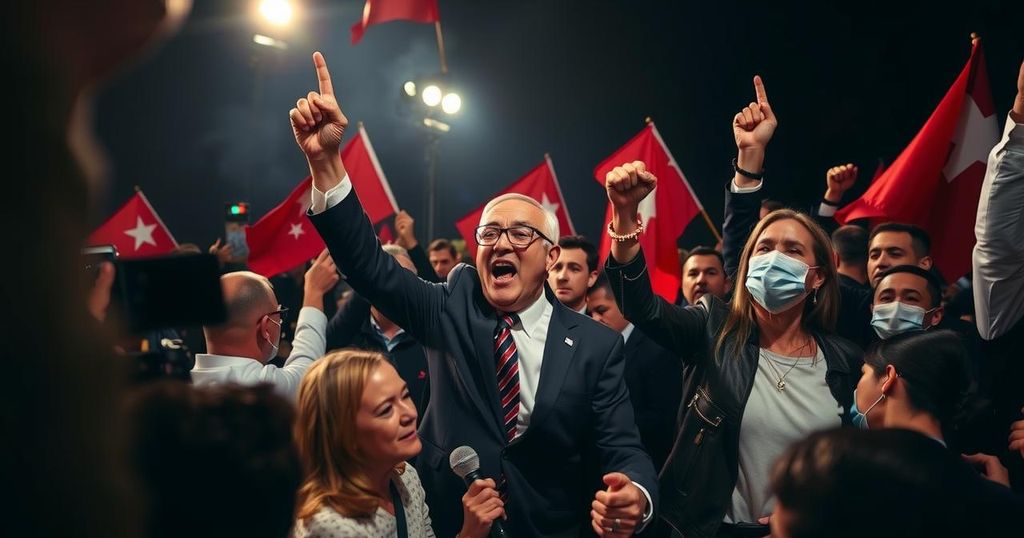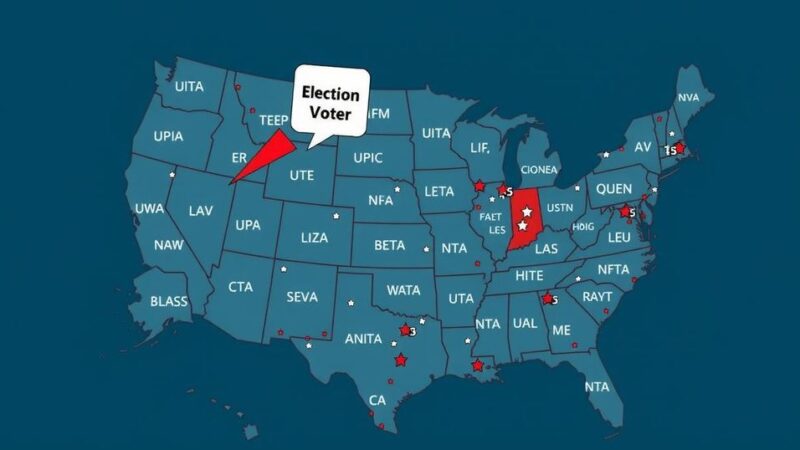The ruling Georgian Dream party won Georgia’s parliamentary elections, securing over 54% of the votes, amid protests from opposition groups claiming electoral fraud. The commission confirmed that the party will have 89 out of 150 parliamentary seats, less than the number needed for constitutional changes. The opposition denounces the election as a “constitutional coup,” and various incidents of voter intimidation and potential fraud have been reported, raising questions about the election’s legitimacy.
The electoral commission of Georgia has announced that the ruling Georgian Dream party has secured victory in the recent parliamentary elections held amidst widespread protests from opposition groups who have labeled the vote a “constitutional coup.” With nearly all precincts reporting, the Georgian Dream party garnered over 54 percent of the votes, as stated by Giorgi Kalandarishvili, Chair of the Central Election Commission. The opposition coalition, comprising four parties, collectively received more than 37 percent of the vote, with the Coalition for Change achieving 10.822 percent, according to Georgia Today. The preliminary results provide the Georgian Dream party with 89 seats in the 150-member parliament. While this allows them to govern, it falls short of the supermajority necessary to alter the constitution. The outcome is particularly disappointing for supporters of pro-Western policies, who viewed the election as a referendum between a government with close ties to Russia and an opposition seeking to accelerate integration with the European Union. Prior to the elections, Brussels had warned that the vote would be a pivotal indicator of Georgia’s democratic health and its prospects for EU membership. Opposition leaders have categorically rejected the results, alleging electoral fraud. Tina Bokuchava, leader of the United National Movement (UNM), claimed the results were “falsified” and declared the election “stolen.” Moreover, Nika Gvaramia, leader of the Ahali party, described the electoral process as a “constitutional coup,” and pro-opposition President Salome Zurabishvili highlighted reports of violent incidents at polling places. A Georgian monitoring organization has been vocal in calling for the annulment of the election results, citing claims of voter intimidation and vote buying, although substantial evidence of widespread fraud remains unverified. Social media platforms have disseminated videos indicating voting irregularities, including reports of ballot-stuffing and attacks on election observers. Bidzina Ivanishvili, the wealthy founder of Georgian Dream, celebrated the results, asserting that the election’s success is indicative of the capabilities of the Georgian populace. While Georgian Dream asserts its intent to join the EU, Brussels continues to maintain skepticism regarding the party’s apparently authoritarian governance style. Campaign rhetoric from Georgian Dream included conspiracy theories regarding Western influences in Georgian politics, fostering fear of war, which they claim to be adept at preventing.
The recent parliamentary elections in Georgia have illuminated the growing divide between the ruling Georgian Dream party and opposition forces advocating for pro-Western policies. With geopolitical tensions in the region heightened by Russia’s actions in Ukraine and its historical conflicts with Georgia, the elections were seen as a crucial test of the country’s democratic integrity. The ruling party’s close ties to Russia have raised concerns among segments of the population who favor European integration and wish to align Georgia more closely with the European Union. Moreover, the electoral outcome could significantly influence Georgia’s future direction and its aspirations for EU membership, which remains contingent on democratic reforms and governance.
In conclusion, the recent elections in Georgia have reaffirmed the ruling Georgian Dream party’s position, albeit without a commanding majority necessary for constitutional changes. The political landscape has been marked by significant opposition dissent, with claims of electoral fraud casting a long shadow over the legitimacy of the results. As the situation develops, the implications for Georgia’s domestic governance and international relationships—particularly in relation to the EU—remain uncertain, and continued scrutiny from both local and international observers is anticipated.
Original Source: www.aljazeera.com






